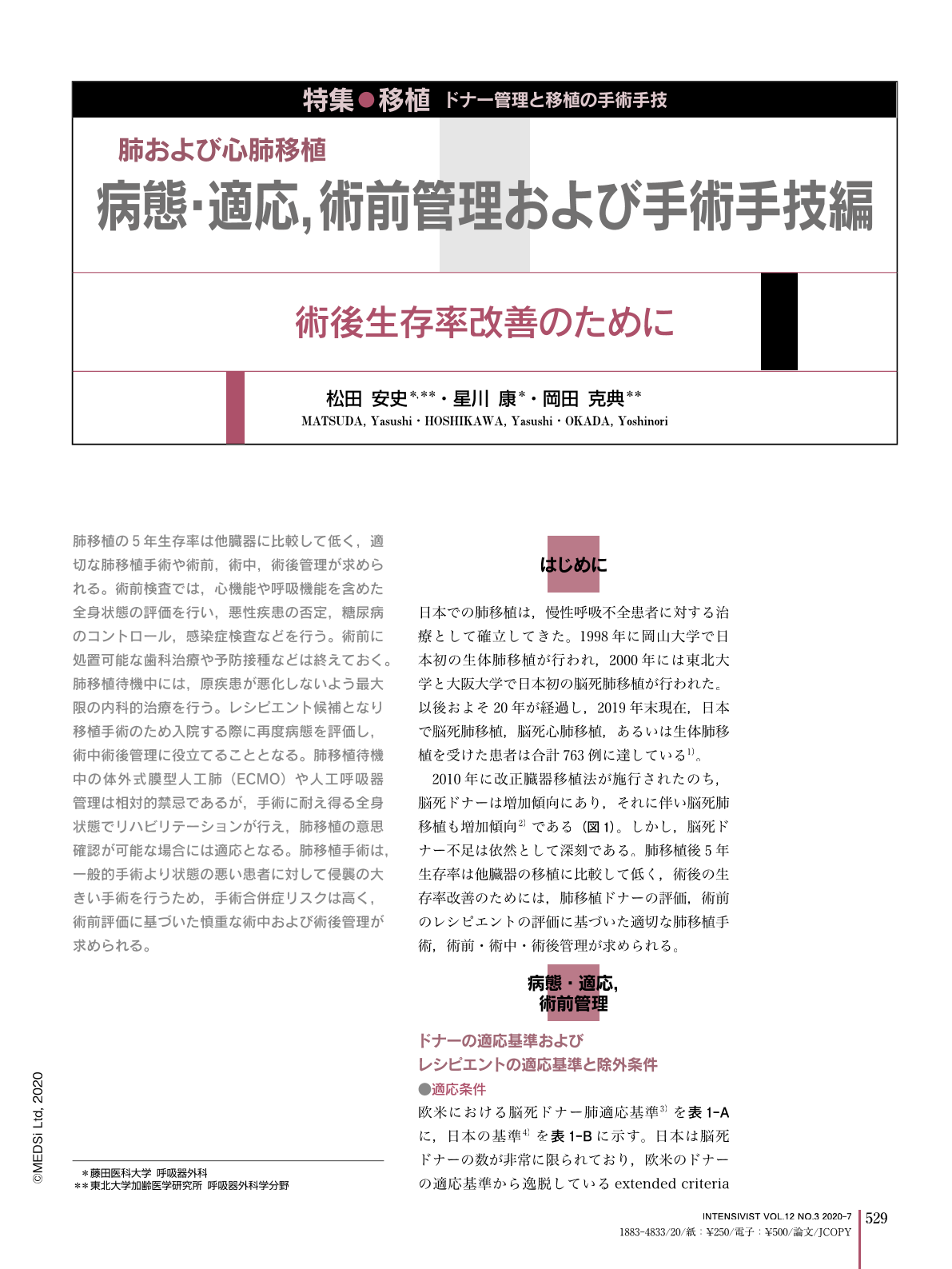Japanese
English
- 有料閲覧
- Abstract 文献概要
- 1ページ目 Look Inside
- 参考文献 Reference
肺移植の5年生存率は他臓器に比較して低く,適切な肺移植手術や術前,術中,術後管理が求められる。術前検査では,心機能や呼吸機能を含めた全身状態の評価を行い,悪性疾患の否定,糖尿病のコントロール,感染症検査などを行う。術前に処置可能な歯科治療や予防接種などは終えておく。肺移植待機中には,原疾患が悪化しないよう最大限の内科的治療を行う。レシピエント候補となり移植手術のため入院する際に再度病態を評価し,術中術後管理に役立てることとなる。肺移植待機中の体外式膜型人工肺(ECMO)や人工呼吸器管理は相対的禁忌であるが,手術に耐え得る全身状態でリハビリテーションが行え,肺移植の意思確認が可能な場合には適応となる。肺移植手術は,一般的手術より状態の悪い患者に対して侵襲の大きい手術を行うため,手術合併症リスクは高く,術前評価に基づいた慎重な術中および術後管理が求められる。
The number of brain dead donors is increasing in Japan, although the number of donors is still insufficient relative to the number of candidates for lung transplantation. The survival rate after lung transplantation is lower than for other organs. Meticulous pre- and post-operative management is essential. Before listing a patient for lung transplantation, a thorough evaluation of cardiopulmonary function, infection survey, diabetes mellitus, and malignancies is important. Candidates should have a complete dental checkup, and immunization for several infectious diseases. While awaiting surgery, maximum medical treatment should be given to maintain the patients' condition. Although mechanical ventilation or ECMO before lung transplantation is thought to be a relative contraindication, it is possible to proceed with lung transplantation if the candidate needs rehabilitation preoperatively, expresses the willingness to undergo lung transplantation and undergoes lung transplant surgery. When the recipient is admitted for lung transplantation, they should undergo appropriate medical assessment to optimize pre- and postoperative care because lung transplantation can be associated with high morbidity and mortality due to the recipient's condition and invasiveness of the procedure.

Copyright © 2020, MEDICAL SCIENCES INTERNATIONAL, LTD. All rights reserved.


